SUMMARY
This is AI generated summarization, which may have errors. For context, always refer to the full article.
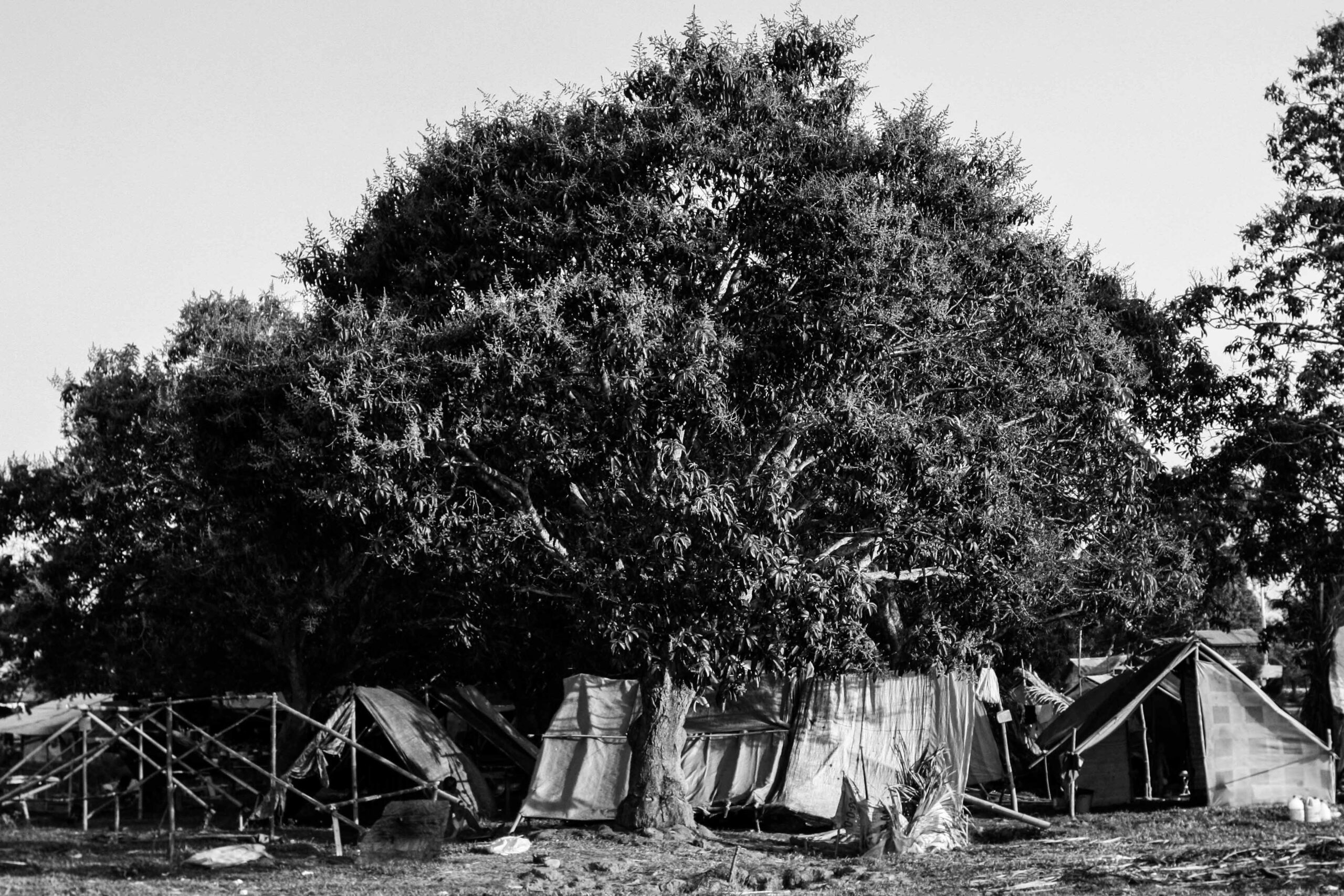
MAGUINDANAO, Philippines — “Mag-bakwit” or “to evacuate” was what the children, men, and women of Lapok and Tapikan villages did when they heard gunshots in the middle of the night.
Most of them ran on foot with their carabaos, chickens, ducks, and anything they could bring with them, covering a distance of at least two kilometers from their homes.
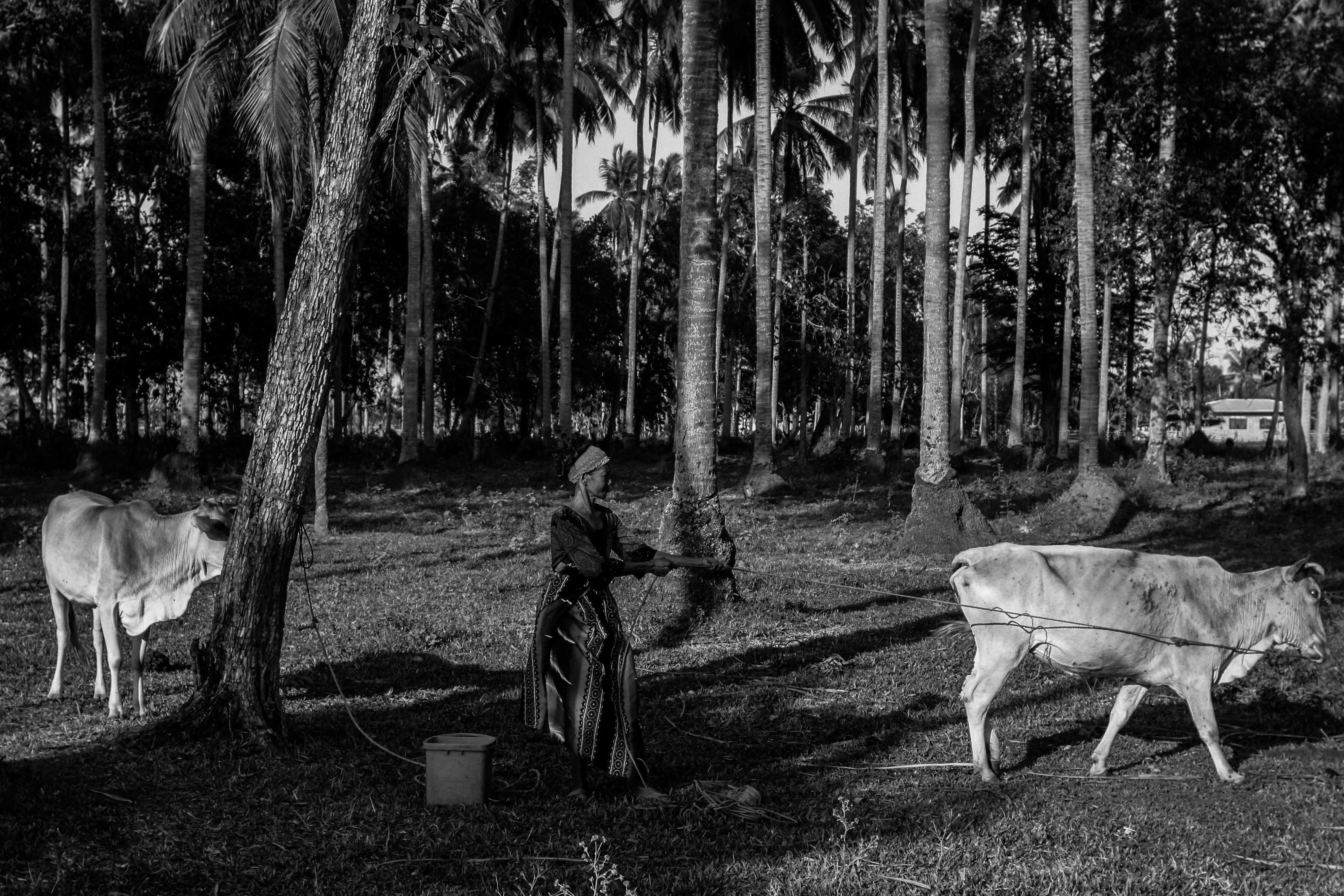
That is what happened to a community living in tents in Shariff Aguak town since February 2015. But without supplies like trapal (tarpaulin) and banig (hand-woven mats), the ground is barely covered, and the tents have holes.
One of the women living in a temporary shelter recalls a night when it rained and water seeped everywhere. Worms crawled out of the ground and ants fell from the trees, she says. But without the rain, the heat coarsened and cracked the earth, making even just walking around painful.
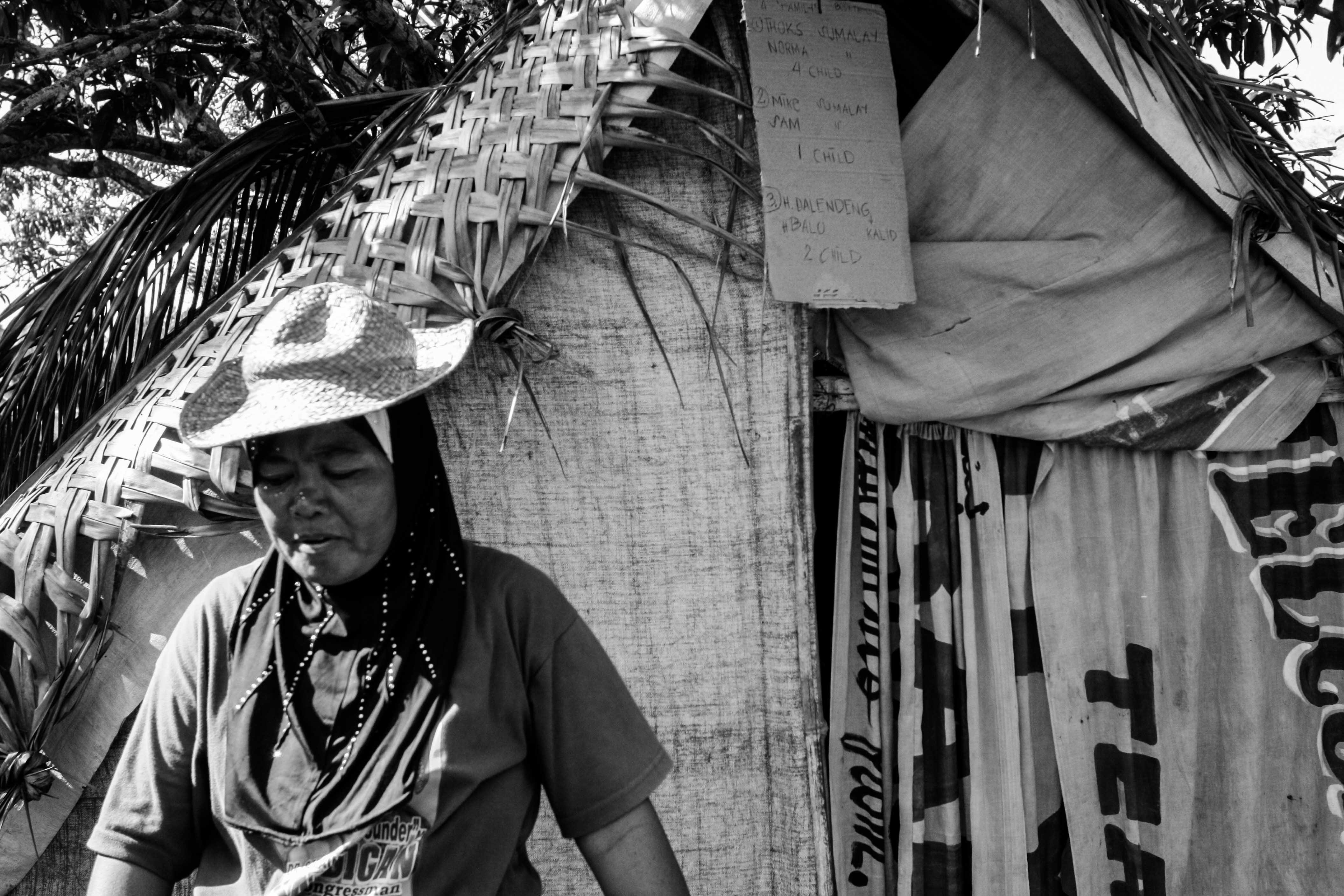
The weather and their temporary shelters, however, are the least of their worries. Supply of toiletries and food has not been enough for their families. They have always been wondering how to survive whenever they need to evacuate. “Kung ‘di kami ma-suplayan dito, eh ‘di wala (Here, if we are not given supplies, we have nothing),” Noraisa from Tapikan says.
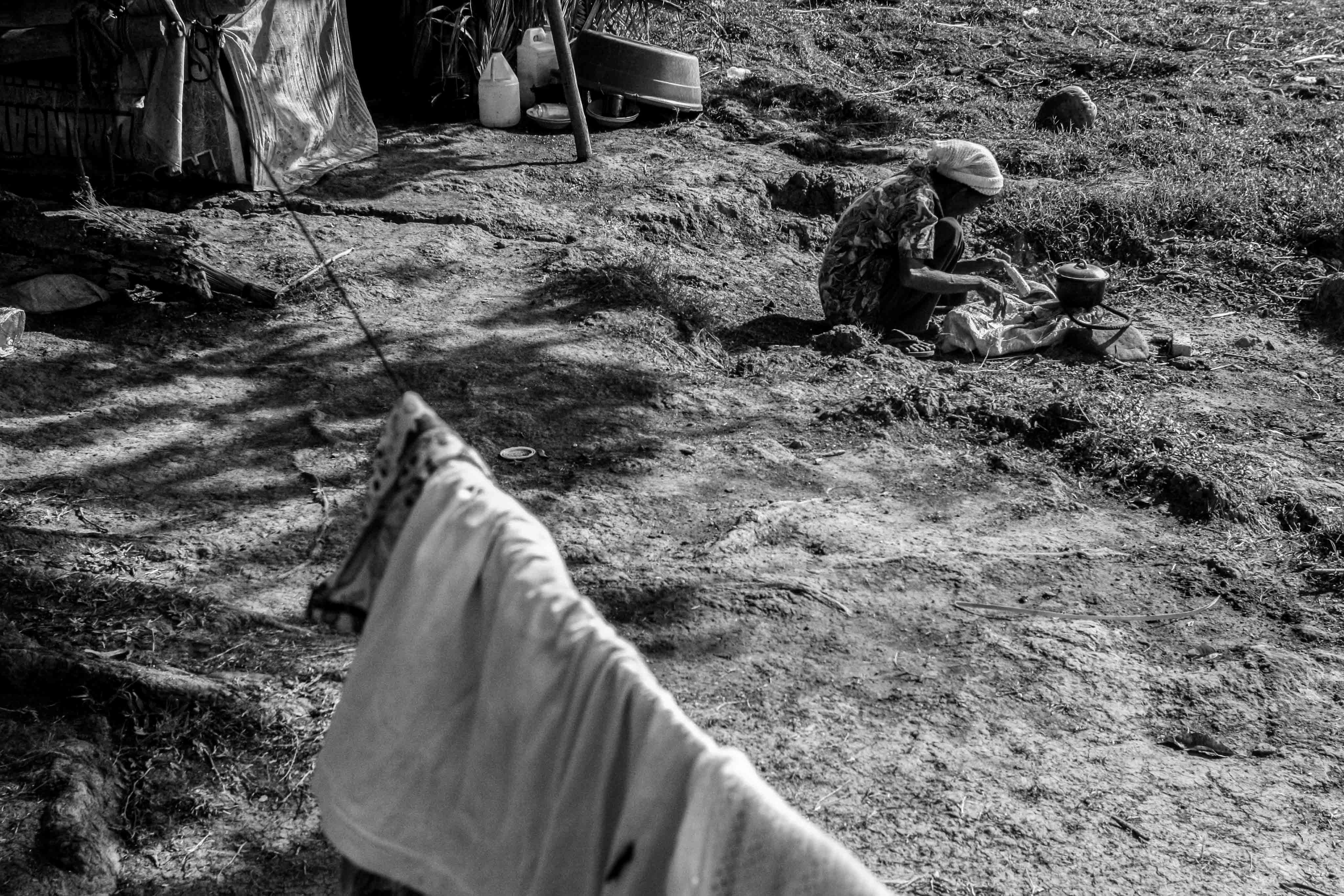
They won’t go home even if they want to. As their farming cycle has been disrputed, they have no livelihood to return to. They are also afraid of getting hit by stray bullets or their homes hit with mortars.
They need assistance, but their sincere hope is for things to go back to normal. They do not want to live longer in a situation where they are in constant fear of getting caught in the crossfire.
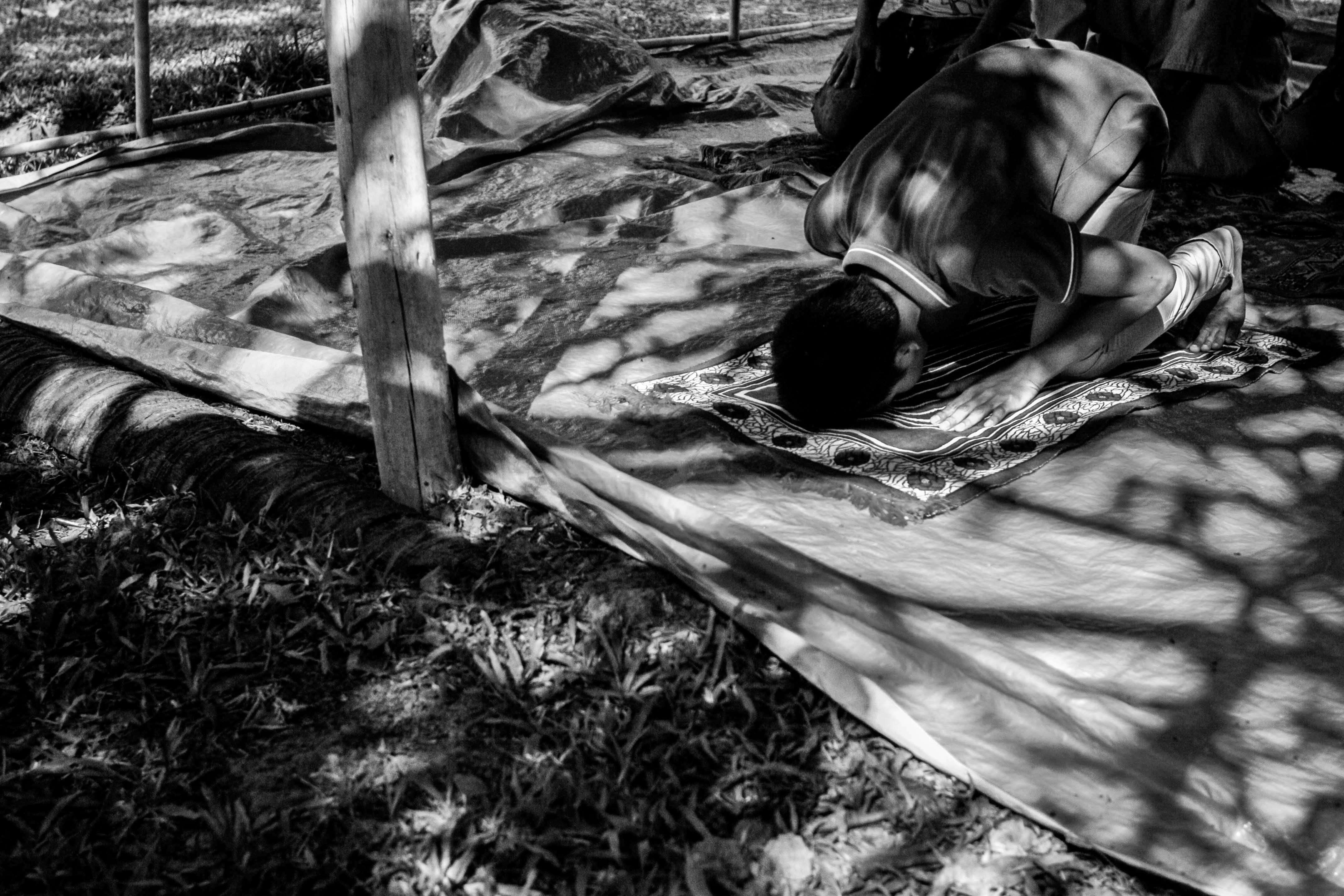
The older ones say there was peace for a time. The last time they experienced being bakwits was when the peace negotiations collapsed in 2008 and warlords ruled the area, grabbing land from the indigenous people.
For most of the children, this is their first time to be bakwits. Their education is disrupted. Their simple dreams of helping their families are now more difficult to reach.
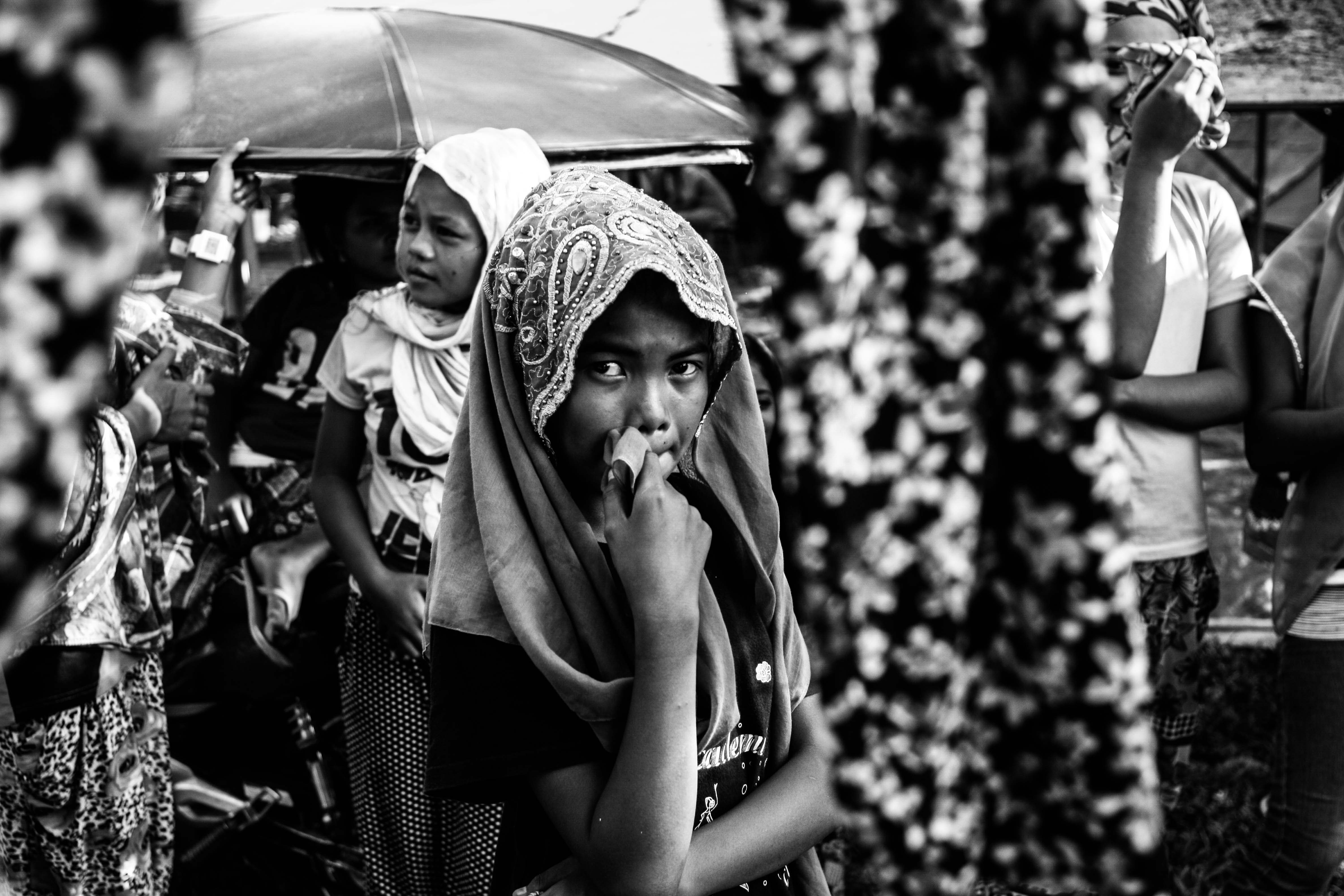
“Napakahirap talaga ng ganito (This is really a difficult situation),” Samraida says. At 20 years old, Samraida is 4 months pregnant with her first child.
“Di natin alam kung anong kinabukasan ng mga anak natin kung patuloy lang ‘yung ganito, ‘yung giyera (We don’t know what our children’s future will be if this continues, this battle).”
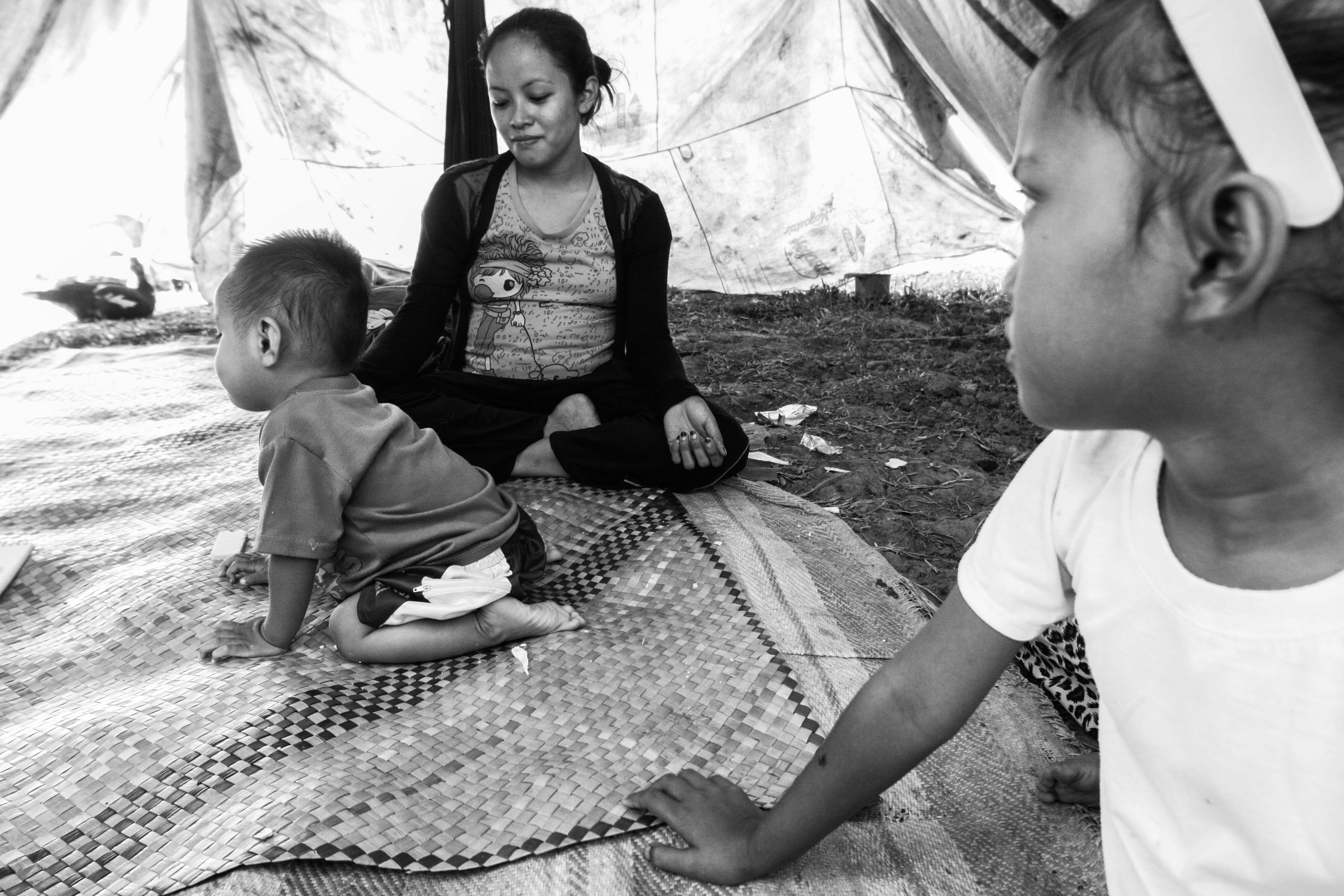
Another generation is inheriting the conflict unless something is done. – Rappler.com
Paul Dawnson Formaran is from the Teach Peace Build Peace Movement, an independent, nonpartisan and non-profit organization composed of an expanding network of active and empowered young generations of different faiths, cultures, and ethnic groups who envision a just and peaceful society and work together as prime movers in building a Culture of Peace.
For more information on their efforts, please contact Bernadette Fernandez at teachpeace.mail@gmail.com.
Add a comment
How does this make you feel?





There are no comments yet. Add your comment to start the conversation.